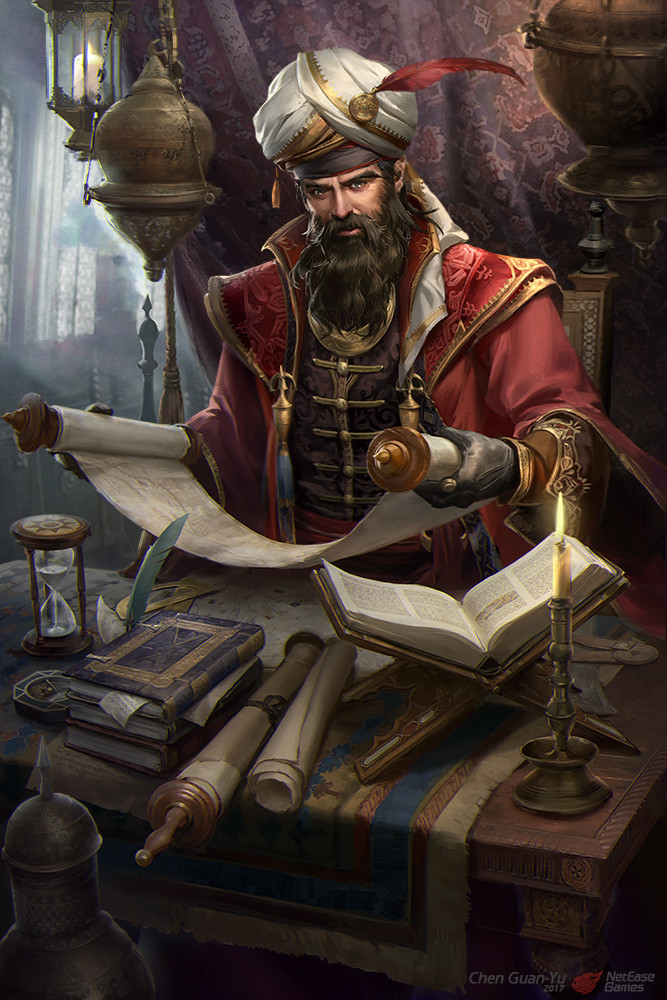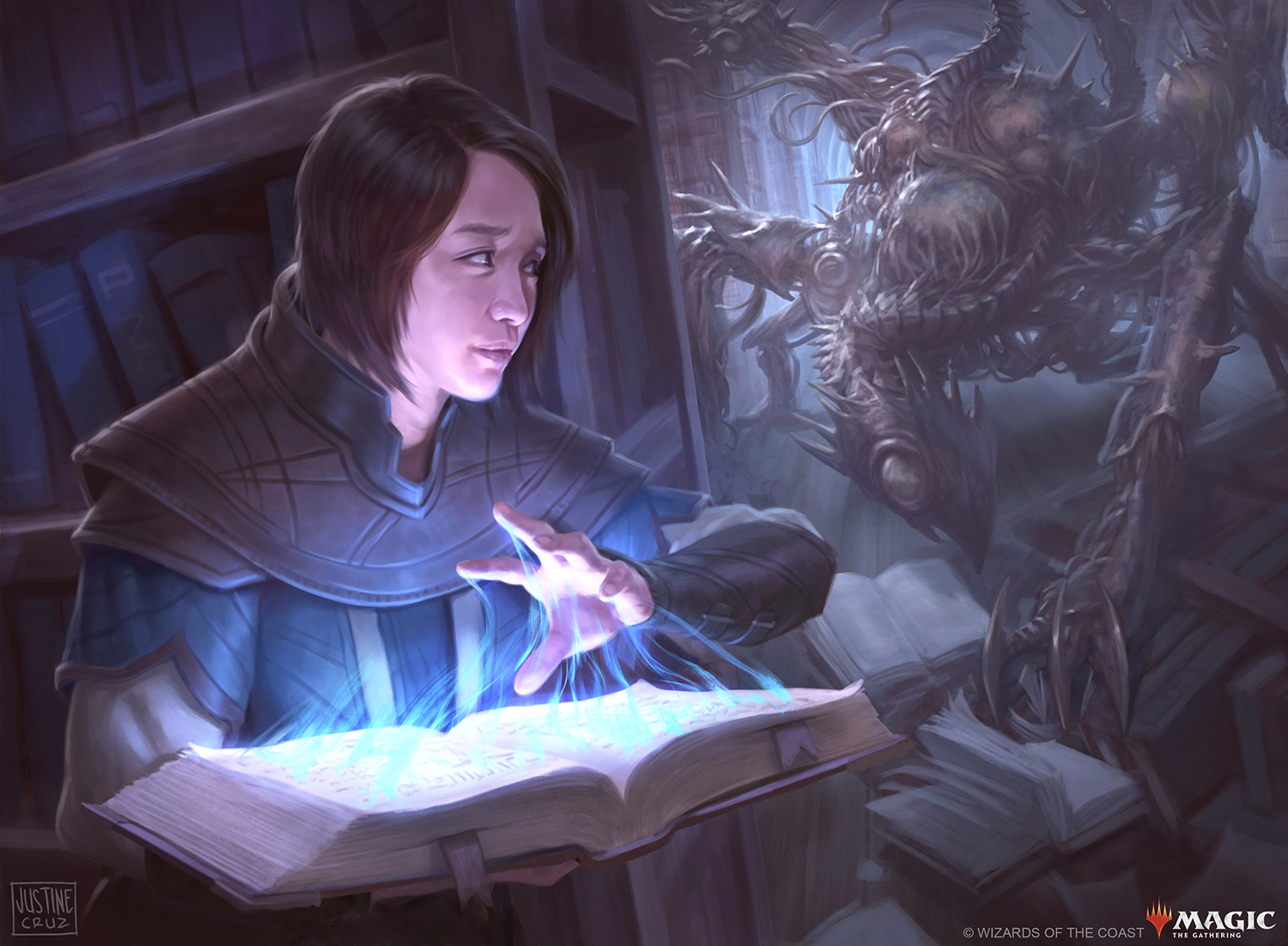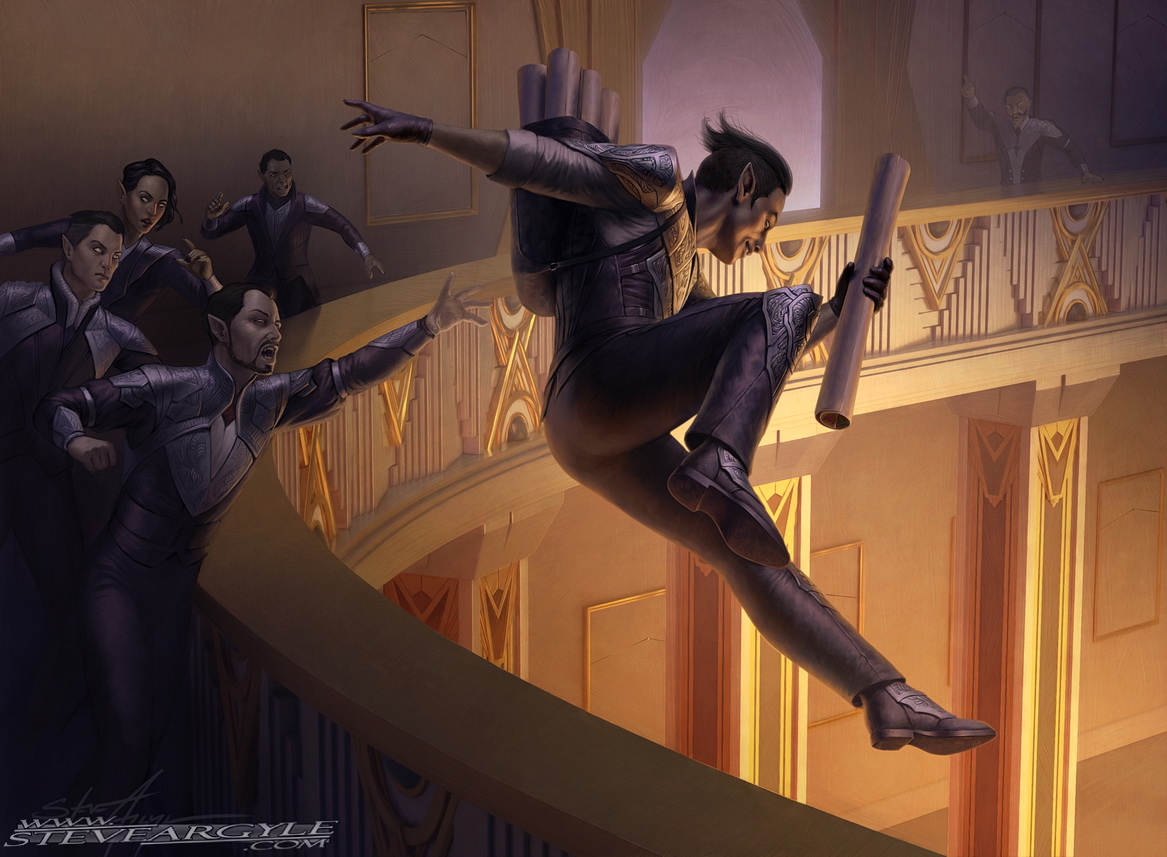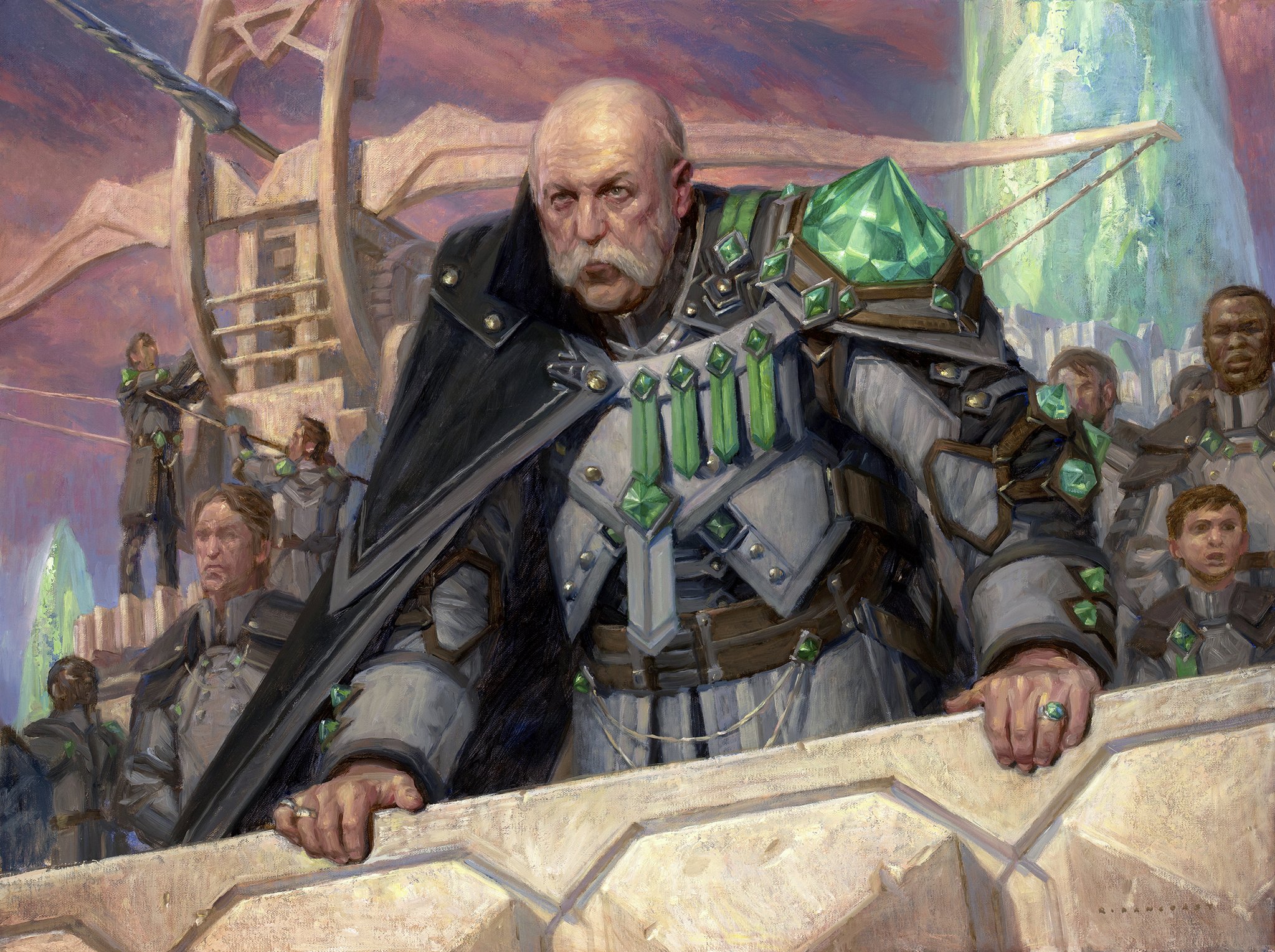




Advisor
The tall and well kept door to a magnificent study opens wide. A glimmer of happiness peaks through a young elven woman's eye, as she witnesses the wonder that is this ancient collection of knowledge. Swiftly running her fingers through each and every page of such a wonderful account of old magics, certainly containing guidance for later.
A thud from a war piece, pushed along by a dwarven general's croupier stick. Clad with plate armor and surrounded by a war room's armory, an angered commander orders silence. A clear head is needed to make this decision, after brief dead air two words come from the general's mouth. "To war!"
Shifting stone scratches across an archaic structure. A tomb opening itself after the grizzled half-orc turned and reordered stones in a pattern of his own finding. At long last, a decades worth of study and exploration pays off through authenticity.
All of these accomplishments are truly defining moments for these members of the Advisor class. Filled with advice and brimming with knowledge, Advisors represent the pinnacle of expertise and skill versatility. Teaching allies and others
Masters of the Mundane
In what is commonly a magically dominated archetype, the advisor is a master of whatever they want to be. The connection to schooling or perhaps even, natural born academic superiority enables the best of the best to rise to the ranks amongst their arcane counterparts.
Although not traditionally considered strong or dexterous, an advisor is extremely versatile. From picking apart an ancient riddle to calculating the perfect amount of downswing for the strike of a weapon, advisors are always both learning and teaching.
Edge of Education
Similar to the bard in many ways, any old teacher or professor isn't always a true advisor. The ability to boil down basic truths and facts into a singular short piece of advice is a difficult task for most. Getting a grasp on the levity, complexity and nuance of specific topics, and then being able to regurgitate it in an understandable and meaningful way is a feat no less than magic.
Utilizing their own knowledge, and that of many others, Advisors are masters of whatever they set their hearts to. The drive to find and perfect knowledge, a craft or an art drives them more than any ideology could.
Creating an Advisor
As you make your advisor character, the largest focus should be put onto what you want the character's field of expertise to be. Although the class features related to your field don't appear until you reach 3rd level, plan ahead by reading their descriptions at the end of the class. Not all advisors got to be one due to an equal playing field though, you should also think about an advisor's upbringing.
Were they enrolled in the most prestigious, high-brow, and curricularly extensive institution this side of the Forgotten Realms? Or did they learn to live on their own, increasing their survival skills, with each passing day?
Quick Build
You can make an advisor quickly by following these suggestions. First, Intelligence should be your highest ability score, followed by Constitution or Dexterity. If you plan to become an expert in a field, use that to determine what you should increase next. Second, choose the sage background.
Optional Rule: Multiclass
If your group uses the optional multiclassing rule, here's what you need to know if you choose to take your first level in the advisor class.
Ability Score Minimum. As a multiclass character, you must have at least an Intelligence score of 13 in order to take a level in this class, or to take a level in another class if you are already an advisor.
Proficiencies Gained. If advisor isn't your initial class, here are the proficiencies you gain when you take your first level as an advisor: light armor, one skill of your choice, and one set of artisan's tools of your choice.
Optional Rule: Alternate Advice
If you believe that your advisor gives advice based on previous experience and wisdom, or charismatic communication; you can use Intelligence, Wisdom, or Charisma for your Word of Advice ability modifier.
Class Features
As a advisor, you gain the following class features
Hit Points
- Hit Dice: 1d6 per advisor level
- Hit Points at 1st Level: 6 + your Constitution modifier
- Hit Points at Higher Levels: 1d6 (or 4) + your Constitution modifier per advisor level after 1st
Proficiencies
- Armor: Light armor, medium armor
- Weapons: Simple weapons, hand crossbows, shortswords
- Tools: Choose any two
- Saving Throws: Intelligence, Wisdom
- Skills: Choose any four
Equipment
You start with the following equipment, in addition to the equipment granted by your background:
- (a) a shortbow and quiver of 20 arrows or (b) any simple weapon
- (a) a book or (b) a case for maps or scrolls
- (a) a diplomat’s pack or (b) an entertainer's pack
- Leather armor, a handaxe and a scholar's pack
Expertise
At 1st level, choose two of your skill proficiencies, or one of your skill proficiencies and one of your tool proficiencies. Your proficiency bonus is doubled for any ability check you make that uses either of the chosen proficiencies.
The Advisor
| Level | Proficiency Bonus | Features | Advice Die |
|---|---|---|---|
| 1st | +2 | Expertise, Word of Advice | 1d4 |
| 2nd | +2 | Common Knowledge, Master of One | 2d4 |
| 3rd | +2 | Field of Expertise | 3d4 |
| 4th | +2 | Ability Score Improvement | 4d4 |
| 5th | +3 | True Abettor | 5d4 |
| 6th | +3 | Field of Expertise Feature | 6d4 |
| 7th | +3 | Your Own Advice | 7d4 |
| 8th | +3 | Ability Score Improvement | 8d4 |
| 9th | +4 | Cut to the Chase | 9d4 |
| 10th | +4 | Field of Expertise Feature | 10d4 |
| 11th | +4 | Repeated Mantra | 11d4 |
| 12th | +4 | Ability Score Improvement | 12d4 |
| 13th | +5 | Insult to Injury | 13d4 |
| 14th | +5 | Field of Expertise Feature | 14d4 |
| 15th | +5 | Common Knowledge (3 Creatures) | 15d4 |
| 16th | +5 | Ability Score Improvement | 16d4 |
| 17th | +6 | Louder Than Words | 17d4 |
| 18th | +6 | Field of Expertise Feature | 18d4 |
| 19th | +6 | Ability Score Improvement | 19d4 |
| 20th | +6 | Unforgettable Instruction | 20d4 |
Word of Advice
At 1st level, you can utilize your own wealth of knowledge to assist others. As a reaction, whenever a creature, other than yourself, who can hear you, makes an ability check or saving throw with an ability you are proficient in, you can roll a d4, and add or subtract the number rolled to their roll. Intelligence is your ability for these effects when you use this trait.
Advice Dice. You have 1 advice die, which is a d4, and you gain more as you reach higher levels, as shown in the Advice Die column of the Advisor table.
You can never have more advice dice than shown on the table for your level. An advice die is expended when you use it. You regain all of your expended advice dice when you finish a long rest.
Saving Throws. When you choose to subtract the number rolled, it requires the target to make an Intelligence saving throw to avoid following your word’s effects. The saving throw DC is calculated as follows:
Advice Save DC = 8 + your proficiency bonus +
Common Knowledge
At 2nd level, your teachings can assist in all sorts of future tasks. Whenever you finish a short or long rest, you can choose one skill or tool proficiency that you have and grant it to a friendly creature. They lose this proficiency when you use this feature to choose a different proficiency that you have. Starting at 15th level, you can grant this to up to 3 friendly creatures.
Master of One
Starting at 2nd level, choose one of your skill or tool proficiencies. Whenever you make an ability check that uses the chosen proficiency, you can treat a d20 roll equal to or lower than your Intelligence modifier as your modifier plus 1.
Field of Expertise
At 3rd level, you choose a field of expertise that you utilize in the application of your advisor abilities: Arcanology, Archeology, Criminology, Polemology, Theology or Zoology detailed at the end of the class description, or one from another source. Your archetype choice grants you features at 3rd level and then again at 6th, 10th, 14th and 18th level.
Ability Score Improvement
When you reach 4th level, and again at 8th, 12th, 16th, and 19th level, you can increase one ability score of your choice by 2, or you can increase two ability scores of your choice by 1. As normal, you can’t increase an ability score above 20 using this feature.
Using the optional feats rule, you can forgo taking this feature to take a feat of your choice instead.
True Abettor
Starting at 5th level, your quick thinking and drive to protect yourself allows you to assist in other ways, from a distance. You can take a bonus action on each of your turns in combat. This action can be used only to take the Disengage, Help or Search action.
Additionally, when you use the Help action to aid an ally in attacking a creature, the target of that attack can be within 30 feet of you, rather than within 5 feet of you, if the target can hear you.
Your Own Advice
Beginning at 7th level, follow through on your words. You can use a bonus action on your turn to grant yourself advantage on the next d20 roll you make within the next 10 minutes.
Once you use this feature, you must finish a short or long rest before you can use it again.
Cut to the Chase
Beginning at 9th level, your mind-body coordination work in tandem. You can give yourself a bonus to your initiative rolls equal to your Intelligence modifier.
Repeated Mantra
By 11th level, repeating your words allows for even further assistance. When you spend an Advice Die, you can choose to expend additional Advice Die to the roll. The maximum number of advice die (1d4 plus any additional die) that you can spend equals half your advisor level, rounded down.
Insult to Injury
Starting at 13th level, whenever you hit a creature with an attack, you can use your reaction to spend advice die and add the number rolled to the next damage roll you make.
Louder Than Words
At 17th level, you know that actions speak louder than words. On your turn, you may give another creature, who can hear you, one additional action, which it takes on your initiative.
Once you use this feature, you must finish a short or long rest before you can use it again.
Unforgettable Instruction
At 20th level, there is irrefutable evidence on your impact on combat. In combat, you get a special reaction that you can take once on every creature’s turn, except your turn. You can use this special reaction only to use your Word of Advice feature, and you can’t use it on the same turn that you take your normal reaction.
Field of Expertise
An Advisor's field of expertise is the area of which their knowledge flourishes. With nearly all the informative concepts of their studied topic, an Advisor is a premiere source of information.
Arcanology
Within the field of Arcanology, these advisors are masters of instruction but have also earned the attention of the world around them, established as a force of change. Similar to magical capabilities of those who study the schools of wizardry, Arcanologists fixate their study in the schools of Divination and Enchantment.
Spellcasting
When you reach 3rd level, you augment your scholarly methods with the ability to cast spells. See Spells Rules for the general rules of spellcasting and the Spells Listing for the wizard spell list.
Cantrips
You learn three cantrips: vicious mockery and two other cantrips of your choice from the wizard spell list. You learn another wizard cantrip of your choice at 10th level.
Spell Slots
The Arcanology Spellcasting table shows how many spell slots you have to cast your wizard spells of 1st level and higher. To cast one of these spells, you must expend a slot of the spell’s level or higher. You regain all expended spell slots when you finish a long rest.


For example, if you know the 1st-level spell charm person and have a 1st-level and a 2nd-level spell slot available, you can cast charm person using either slot.
Spells Known of 1st-Level and Higher
When you reach 3rd level, You know three 1st-level wizard spells of your choice, two of which you must choose from the divination and enchantment spells on the wizard spell list.
The Spells Known column of the Arcanology Spellcasting table shows when you learn more wizard spells of 1st level or higher. Each of these spells must be a divination and enchantment spell of your choice, and must be of a level for which you have spell slots. For instance, when you reach 7th level in this class, you can learn one new spell of 1st or 2nd level.
The spells you learn at 8th, 14th, and 20th level can come from any school of magic.
Whenever you gain a level in this class, you can replace one of the wizard spells you know with another spell of your choice from the wizard spell list. The new spell must be of a level for which you have spell slots, and it must be a divination and enchantment spell, unless you’re replacing the spell you gained at 3rd, 8th, 14th, or 20th level from any school of magic.
Spellcasting Ability
Your Intelligence modifier is your spellcasting ability for your wizard spells, since your magic comes from the same places as your knowledge of the world. You use your this modifier whenever a spell refers to your spellcasting ability. In addition, you use your this modifier when setting the saving throw DC for a wizard spell you cast and when making an attack roll with one.
Spell Save DC
Spell attack modifier
Arcanology Spellcasting
| Level | Cantrips Known | Spells Known | 1st | 2nd | 3rd | 4th |
|---|---|---|---|---|---|---|
| 3rd | 3 | 3 | 2 | — | — | — |
| 4th | 3 | 4 | 3 | — | — | — |
| 5th | 3 | 4 | 3 | — | — | — |
| 6th | 3 | 4 | 3 | — | — | — |
| 7th | 3 | 5 | 4 | 2 | — | — |
| 8th | 3 | 6 | 4 | 2 | — | — |
| 9th | 3 | 6 | 4 | 2 | — | — |
| 10th | 4 | 7 | 4 | 3 | — | — |
| 11th | 4 | 8 | 4 | 3 | — | — |
| 12th | 4 | 8 | 4 | 3 | — | — |
| 13th | 4 | 9 | 4 | 3 | 2 | — |
| 14th | 4 | 10 | 4 | 3 | 2 | — |
| 15th | 4 | 10 | 4 | 3 | 2 | — |
| 16th | 4 | 11 | 4 | 3 | 3 | — |
| 17th | 4 | 11 | 4 | 3 | 3 | — |
| 18th | 4 | 11 | 4 | 3 | 3 | — |
| 19th | 4 | 12 | 4 | 3 | 3 | 1 |
| 20th | 4 | 13 | 4 | 3 | 3 | 1 |
Word of Wizardry
3rd-Level Arcanology feature
Your words can at times be harsh enough to throw even the steadiest off-balance. You gain an additional way to use your Word of Advice; you can use the reaction when another creature makes a d20 roll due to a spell you know. All the other rules for Word of Advice still apply to you.
Convincing Words
6th-level Arcanology feature
Your elegant words and enchanting gaze can magically enthrall another creature. When a creature that you can see within 30 feet of you fails a saving throw against your word of advice, it becomes charmed by you until the end of your next turn. The charmed creature’s speed drops to 0, and the creature is incapacitated and visibly dazed.
On subsequent turns, you can spend an advice die and use your action to maintain this effect, extending its duration until the end of your next turn. However, the effect ends if you move more than 30 feet away from the creature, if the creature can neither see nor hear you, or if the creature takes damage.
Once the effect ends, you can’t use this feature on that creature again until you finish a long rest.


Malevolent Mockery
10th-level Arcanology feature
When you cast vicious mockery, you can use your Word of Wizardry feature to grant the creature disadvantage on the save instead.
In addition, you can spend 2 advice die to cast the spell as a reaction, given you haven't already used your action to cast the spell on your turn.
Mastered Knowledge
14th-level Arcanology feature
You gain proficiency with the Intelligence (Arcana) skill if you don’t already have it. You have advantage on any ability check you make that uses your proficiency with Intelligence (Arcana).
Additionally, when a creature within 30 feet of you succeeds on an Intelligence (Arcana) check, you regain 1 Advice Die.
Tandem Targets
18th-level Arcanology feature
When you or someone else casts a spell targeting you, you can choose to spend advice die, equal to the level of the spell being cast, to affect another creature with the spell. The creature must be within 30 feet and be able to see and hear you.
Archeology
Archaeologists are those who study the remnants of historical civilizations and cultures. The advisors who choose the Archaeologist field of expertise are driven by a desire to uncover the past, forming a connection to the lives of those that came before, and unlocking within themselves a connection to history.
Bonus Proficiencies
3rd-level Archeology feature
You gain proficiency with a martial weapon of your choice and learn one language of your choice.
Word of Authenticity
3rd-level Archeology feature
Phrases of old can often bring back normalcy. You gain an additional way to use your Word of Advice; you can use the reaction when a creature is about to roll a d20 with advantage or disadvantage. All the other rules for Word of Advice still apply to you.
Trap Sense
6th-level Archeology feature
Dangerous secrets are only so for the unprepared, you're invaluable in such situations. As a bonus action on your turn you can sense the presence of any trap, within 30 feet. A trap, includes anything that would inflict a sudden or unexpected effect you consider harmful or undesirable, which was specifically intended as such by its creator. Thus, you would sense an area affected by the alarm spell, a glyph of warding, or a mechanical pit trap, but not natural instability or compromised infrastructure. You don't learn the location of each trap, but you do learn the general nature of the danger posed by a trap you sense.
Exploring Eye
10th-level Archeology feature
When you use the Search action and successfully find an obscured creature or object you become aware of the target's location, within 60 feet, as it no longer gains any benefits of being hidden or invisible to you.
Mastered Knowledge
14th-level Archeology feature
You gain proficiency with the Intelligence (History) skill if you don’t already have it. You have advantage on any ability check you make that uses your proficiency with Intelligence (History).
Additionally, when a creature within 30 feet of you succeeds on an Intelligence (History) check, you regain 1 Advice Die.
Historian's Fallacy
18th-level Archeology feature
There is much to be learned outside of the out-dated scrolls and tomes. Whenever you use your Common Knowledge feature, you may choose an additional proficiency of any kind from a friendly creature, to grant.
For example, if a creature has proficiency with martial weapons, you may grant yourself and up to 3 friendly creatures proficiency with martial weapons.


Criminology
Criminology is both the study of criminal behavior and its derived action, crime. Masters of cunning and conniving, no job is too big, or prize too small.
Bonus Proficiencies
3rd-level Criminology feature
You gain proficiency with thieves’ tools and learn thieves’ cant.
Phony Pharynx
3rd-level Criminology feature
You can unerringly mimic the speech patterns and voice of a creature that you hear speak for at least 1 minute, enabling you to pass yourself off as the creature or a native speaker of a particular land, provided that you know the language.
Word of Privacy
3rd-level Criminology feature
Advice given through secrets or shadow. You gain an additional way to use your Word of Advice; you can use the reaction when another creature makes a d20 roll while you are in dim light or darkness. All the other rules for Word of Advice still apply to you.
Uncanny Dodge
6th-level Criminology feature
When an attacker that you can see hits you with an attack, you can use your reaction to halve the attack’s damage against you.
Muscle Memory
10th-level Criminology feature
Your study or practice of sleuth has come in handy. As a result, whenever you make a Dexterity check, you can treat a d20 roll equal to or lower than your Intelligence modifier as your modifier plus 1.
Mastered Knowledge
14th-level Criminology feature
You gain proficiency with the Intelligence (Investigation) skill if you don't already have it. You have advantage on any ability check you make that uses your proficiency with Intelligence (Investigation).
Additionally, when a creature within 30 feet of you succeeds on a Intelligence (Investigation) check, you regain 1 Advice Die.
Auditory Secrecy
18th-level Criminology feature
When an enemy that can hear but not see you, fails a d20 roll, you regain 1 advice die.
Additionally, when you use the Help action to aid an ally in attacking a creature, the target of that attack can be within 60 feet of you, rather than within 30 feet of you, if you are heavily obscured.


Polemology
Polemology, is the multi-disciplinary study of war. Advisors who specialize in such an area have molded themselves into unrivaled tacticians and strategists. While not on the front lines, they are highly trained and skilled warriors in their own right.
Bonus Proficiencies
3rd-level Polemology feature
You gain proficiency with martial weapons and heavy armor.
Utilitarian Toughness
3rd-level Polemology feature
Your hit point maximum increases by 3, and it increases by 1 every time you gain an advisor level.
Extra Attack
6th-level Polemology feature
You can attack twice, instead of once, whenever you take the Attack action on your turn.
Tactical Retreat
10th-level Polemology feature
Whenever you take the Disengage action on your turn, your walking speed increases by 10 feet until the end of your next turn. Additionally, the walking speed of any ally who starts their turn within 5 feet of you increases by 10 feet until the end of that turn.
Mastered Knowledge
14th-level Polemology feature
You gain proficiency with the Strength (Athletics) skill if you don’t already have it. You have advantage on any ability check you make that uses your proficiency with Strength (Athletics).
Additionally, when a creature within 30 feet of you succeeds on a Strength (Athletics) check, you regain 1 Advice Die.
Actions Speak
18th-level Polemology feature
On occasion an example is best set by oneself. As a bonus action on your turn, you can spend advice die to gain the following benefits, for 1 round per die spent:
- You gain a bonus to your AC equal to your Intelligence modifier (minimum of +1).
- You gain temporary hit points equal to the number rolled.
- You can use Intelligence instead of Strength or Dexterity for the attack and damage rolls of weapons you wield.
- Whenever you score a critical hit on a weapon attack, you regain 1 advice die.


Theology
The gods of the multiverse are truly a spectacle to behold. Many worship and pray to them in hopes for the gift of magic, but as only a true expert knows; there is more than magic can be studied.
Researched Rituals
3rd-level Theology feature
A gods magic isn't limited to only its clerics. You gain the ability to cast the augury and detect magic spells, but only as rituals, as described in the Spellcasting section.
Word of Protection
3rd-level Theology feature
The protection of their worshipers is incredibly important to the gods. You gain an additional way to use your Word of Advice; you can use the reaction when a friendly creature, within 30 feet, is about to take damage and reduce the damage by the number rolled. All the other rules for Word of Advice still apply to you.
Adroit of Old
6th-level Theology feature
Gods often hold the key to the knowledge of old. When you use your Common Knowledge ability, you can choose one additional skill or tool proficiency to grant.
Divine Dial
10th-level Theology feature
A god's domain delineates their availability. You can cast the commune spell, but only as a ritual. When you do so, roll on the Divine Dial Table to determine which domain of deities you contact.
Divine Dial Table
| d20 | Divine Domain |
|---|---|
| 1 | Arcana Domain |
| 2 | City Domain |
| 3 | Death Domain |
| 4 | Fate Domain |
| 5 | Forge Domain |
| 6 | Grave Domain |
| 7 | Knowledge Domain |
| 8-10 | Life Domain |
| 11 | Light Domain |
| 12 | Nature Domain |
| 13 | Order Domain |
| 14 | Peace Domain |
| 15 | Protection Domain |
| 16 | Tempest Domain |
| 17 | Trickery Domain |
| 18 | Twilight Domain |
| 19 | War Domain |
| 20 | Your Choice |
Mastered Knowledge
14th-level Theology feature
You gain proficiency with the Intelligence (Religion) skill if you don’t already have it. You have advantage on any ability check you make that uses your proficiency with Intelligence (Religion).
Additionally, when a creature within 30 feet of you succeeds on an Intelligence (Religion) check, you regain 1 Advice Die.
Conduit of Divinity
18th-level Theology feature
In an agreement with the gods, you have taken on some of their properties. You gain the following properties:
- You learn two Channel Divinities of your choice from those available to the cleric class. If a channel divinity requires your target to make a saving throw to resist its effects, the saving throw DC equals 8 + your proficiency bonus + your Intelligence modifier.
- You gain one use of Channel Divinity, and you regain it whenever you finish a short or long rest.
Zoology
Animals of all kinds are important to the world. Beasts, monstrosities and the like are deeply valued to an expert of Zoology. Often trusting in a pet of their own, these advisors utilize their knowledge of nature to assist.


Animal Apprentice
3rd-level Zoology feature
A well trusted assistant is common to find alongside a zoology expert. The animal apprentice is friendly to you and your companions, and it obeys your commands. See this creature’s game statistics in the Animal Apprentice stat block, which uses your proficiency bonus (PB) in several places.
In combat, the apprentice shares your initiative count, but it takes its turn immediately after yours. It can move and use its reaction on its own, but the only action it takes on its turn is the Dodge action, unless you take a bonus action on your turn to command it to take another action. That action can be one in its stat block or some other action. If you are incapacitated, the apprentice can take any action of its choice, not just Dodge.
If the apprentice dies, you can obtain a new apprentice by spending 8 hours bonding with a small or smaller beast that isn’t hostile to you.
Word of the Wild
3rd-level Zoology feature
The ebb and flow of nature is malleable to you. You gain an additional way to use your Word of Advice; you can use the reaction when a beast, monstrosity or plant makes a d20 roll. All the other rules for Word of Advice still apply to you.
Above and Beyond
6th-level Zoology feature
Sometimes the beast knows best. When your apprentice takes the Help action, you can expend an Advice Die for the apprentice to make an attack as a bonus action, using the number rolled in place of the normal damage of its strike.
In addition, the apprentice's attacks now count as magical for the purpose of overcoming resistance and immunity to nonmagical attacks and damage.
Increase Qualifications
10th-level Zoology feature
A quality peer can come in all shapes and sizes. As an action on your turn, you and your animal apprentice both gain the following benefits for 1 minute:
- Your walking speeds increase by 10 feet.
- You can use the dash action as a bonus action.
- You gain an amount of temporary hit points equal to your advisor level, divided amongst both creatures.
Once you use this feature, you must finish a short or long rest before you can use it again.
Mastered Knowledge
14th-level Archeology feature
You gain proficiency with the Wisdom (Animal Handling) skill if you don’t already have it. You have advantage on any ability check you make that uses your proficiency with Wisdom (Animal Handling).
Additionally, when a creature within 30 feet of you succeeds on a Wisdom (Animal Handling) check, you regain 1 Advice Die.
Animal Apprentice
Small Beast, Neutral
- Armor Class 13 + PB (natural armor)
- Hit Points 5 + five times your advisor level (the companion has a number of Hit Dice [d8s] equal to your advisor level)
- Speed 30 ft.
STR DEX CON INT WIS CHA 17 (+3) 17 (+3) 15 (+2) 12 (+1) 6 (-2) 6 (-2)
- Saving Throws Dex +3 plus PB, Con +2 plus PB
- Senses darkvision 60 ft., passive Perception 11
- Languages understands the languages you speak
- Proficiency Bonus equals your bonus
Actions
Strike. Melee Weapon Attack: +3 plus PB to hit, reach 5 ft., one target. Hit: 1d8 plus PB bludgeoning, piercing, or slashing damage (your choice).
Reactions
Intercept Attack. When a creature the companion can see hits a target with an attack, and the target is within 5 feet of the companion, the target instead takes half the damage. The companion takes the remainder of the damage.
Unrivaled Assistance
18th-level Zoology feature
Your apprentice is taught so they may become a master. When you or your apprentice take the Help action on your turn, the other creature can treat a d20 roll of 9 or lower as a 10.
Big
Thanks to
These Artists
- Front Cover Art: Piri Resis by Guan Yu Chen
- Page 2 Background Art: Grand Library by TJ Foo
- Page 2 Character Art: Empires in ruins - Main Characters by Konrad Langa
- Page 5 Art: Combat Research MtG Art from Dominaria United by Justine Cruz
- Page 6 Art: Learn from the Past Art by Chase Stone MtG Art from Dragons of Tarkir by Chase Stone
- Page 7 Art: Rob the Archives MtG Art from Streets of New Capenna by Steve Argyle
- Page 8 Art: General Kudro of Drannith MtG Art from Ikoria by Ryan Pancoast
- Page 9 Art: Gods Willing MtG Art from Theros by Mark Winters
- Page 10 Art: Kari Zev, Skyship Raider MtG Art from Aether Revolt by Brad Rigney